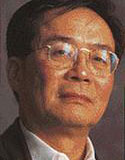Troublemaker
| |||||||||||||||||
|
Editeur - Casa editrice |
Newsmax.Com (December 13, 2002) |
Asia
|
|||||||||||||||
|
Anno - Date de Parution |
2002 | ||||||||||||||||
|
Pagine - Pages | 327 | ||||||||||||||||
|
Lingua - language - langue | eng | ||||||||||||||||
|
|
|||||||||||||||||

|
Amazon.com (United States) - order this book Troublemaker |
||||||||||||||||
|
|
|
Harry Wu, China's most prominent dissident exile in the West, spent 19 years condemned as a counterrevolutionary in the laogai, his country's equivalent of the Soviet gulag system of forced labor camps. After escaping to California in 1985 he began a tireless campaign to publicize human rights abuses within the Chinese prison system, including the harvesting of organs from prisoners, and profiteering from forced labor supported by World Bank subsidies and U.S. importing of prison-made goods. Through Vecsey, a columnist for the New York Times, Wu recounts his incessant and intrepid troublemaking, including his clandestine trips back into China, on one of which he was caught, charged with spying, and deported after U.S. pressure for his release. --This text refers to an out of print or unavailable edition of this title.
Recensione in altra lingua (English): |
| An important human rights document, Wu's dramatic memoir, written with New York Times reporter Vecsey, chronicles his recent campaign to expose China's slave-labor camp system?six to eight million inmates in 1155 camps rife with beatings, torture, murders and near starvation conditions. He also presents shocking evidence that China is executing prisoners to harvest their organs for transplants, and that China's prison-made goods?everything from shoes to tea to tools?are exported to the U.S. Born in China in 1937, geologist Wu spent 19 years in forced-labor camps (1960-1979) after being officially branded a "troublemaker" for criticizing communist rule. He emigrated to the U.S. in 1985. While he wrote of his hellish camp experience in Bitter Winds, Wu does reflect here on his years in China. Mainly, however, he focuses on the three trips he made to China under an alias between 1991 and 1994, documenting camp conditions for CBS-TV's 60 Minutes and for the BBC, as well as an abortive 1995 trip, on which he was arrested at the border and sentenced to 15 years but expelled under pressure from Washington. Wu here aims to have the Chinese prison camp system?laogai?become as notorious as the Soviet gulag. Photos not seen by PW. Author tour. | |||||||||||||
| Biografia | |||||||||||||||||
|
Harry Hongda Wu è nato nel 1937 a Shangai dove ha seguito le scuole cattoliche. Fuggito dalla Cina, dagli anni Ottanta del Novecento vive a Washington dove ha fondato la Laogai Research Foundation, che studia la particolarità cinese dei gulag e soprattutto i suoi addentellati economici nella produzione di merci che invadono il mondo. | |||||||||||||||||
| Consulta anche: Il sito di Laogai Research Foundation | |||||||||||||||||
| Consulta anche: Laogai su Wikipedia | |||||||||||||||||
| |||||||||||||||||



 Troublemaker
Troublemaker

 18 settembre 2006 -Squadristi dei centri sociali aggrediscono il Presidente della Laogai Foundation
18 settembre 2006 -Squadristi dei centri sociali aggrediscono il Presidente della Laogai Foundation